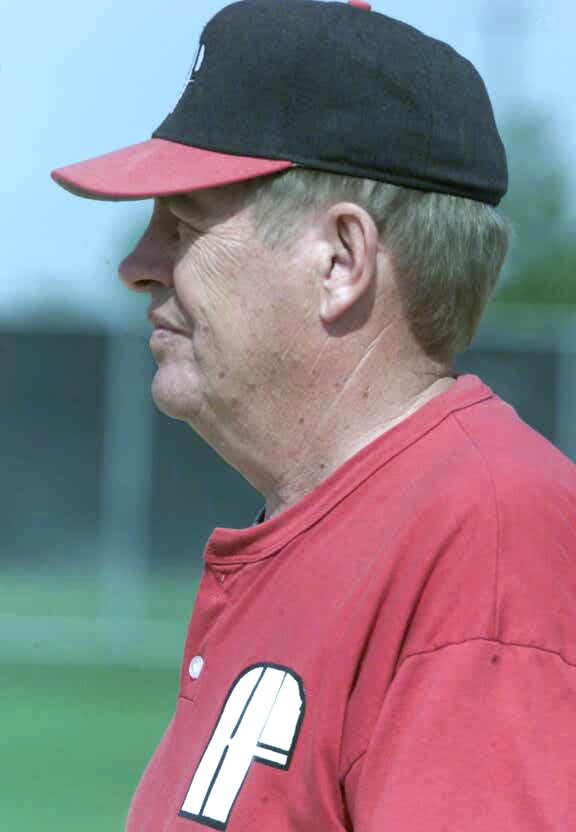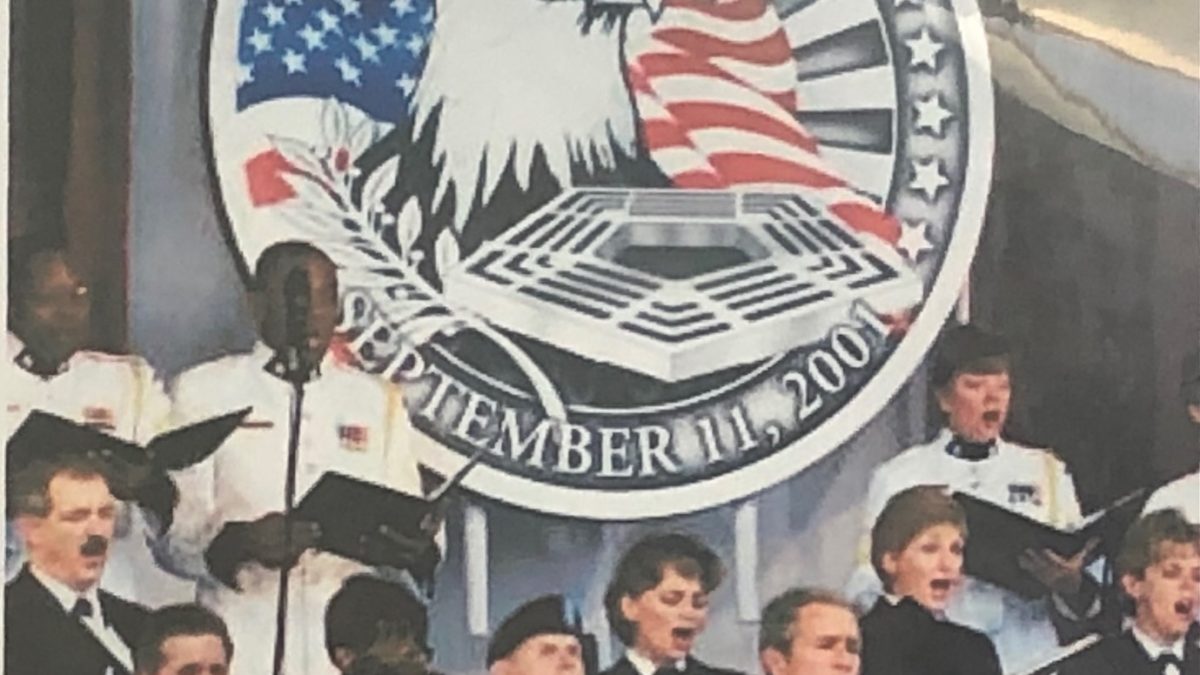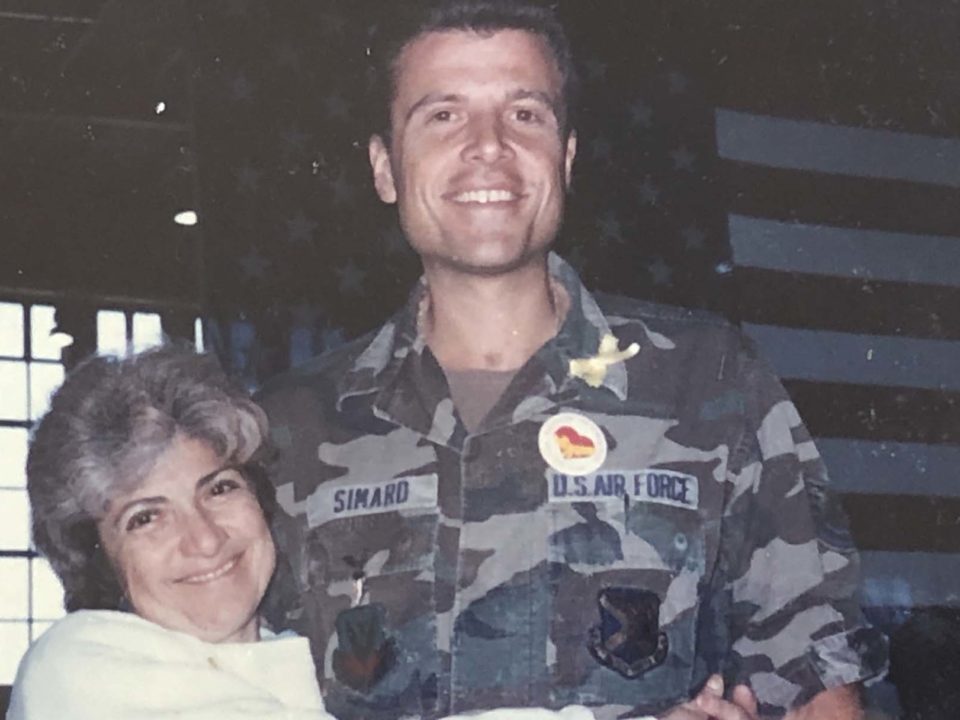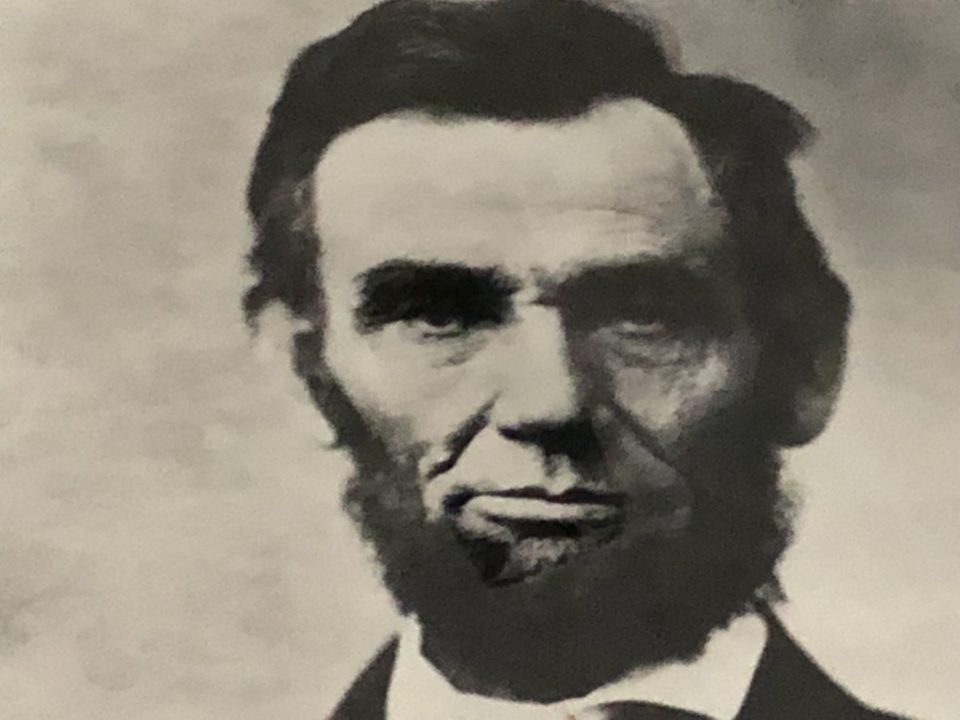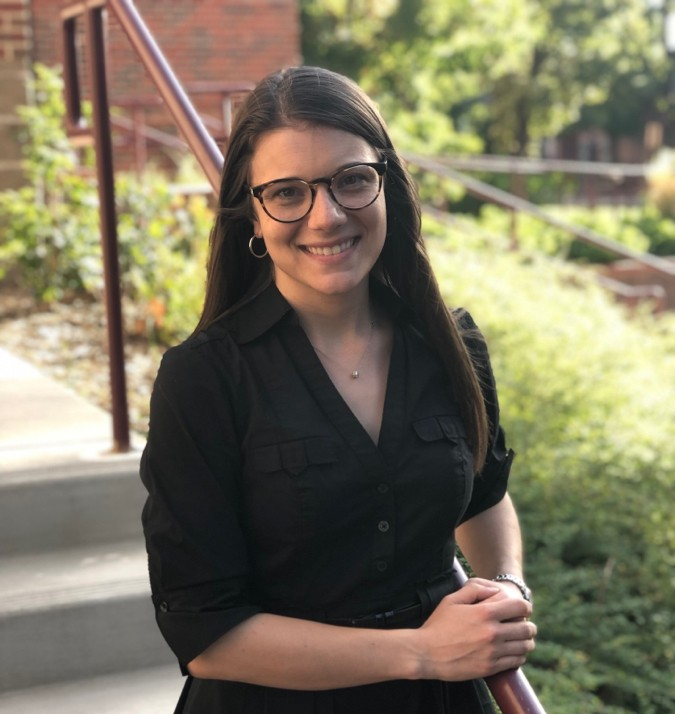
Psycho-oncology: A Future Therapist’s Perspective
July 27, 2021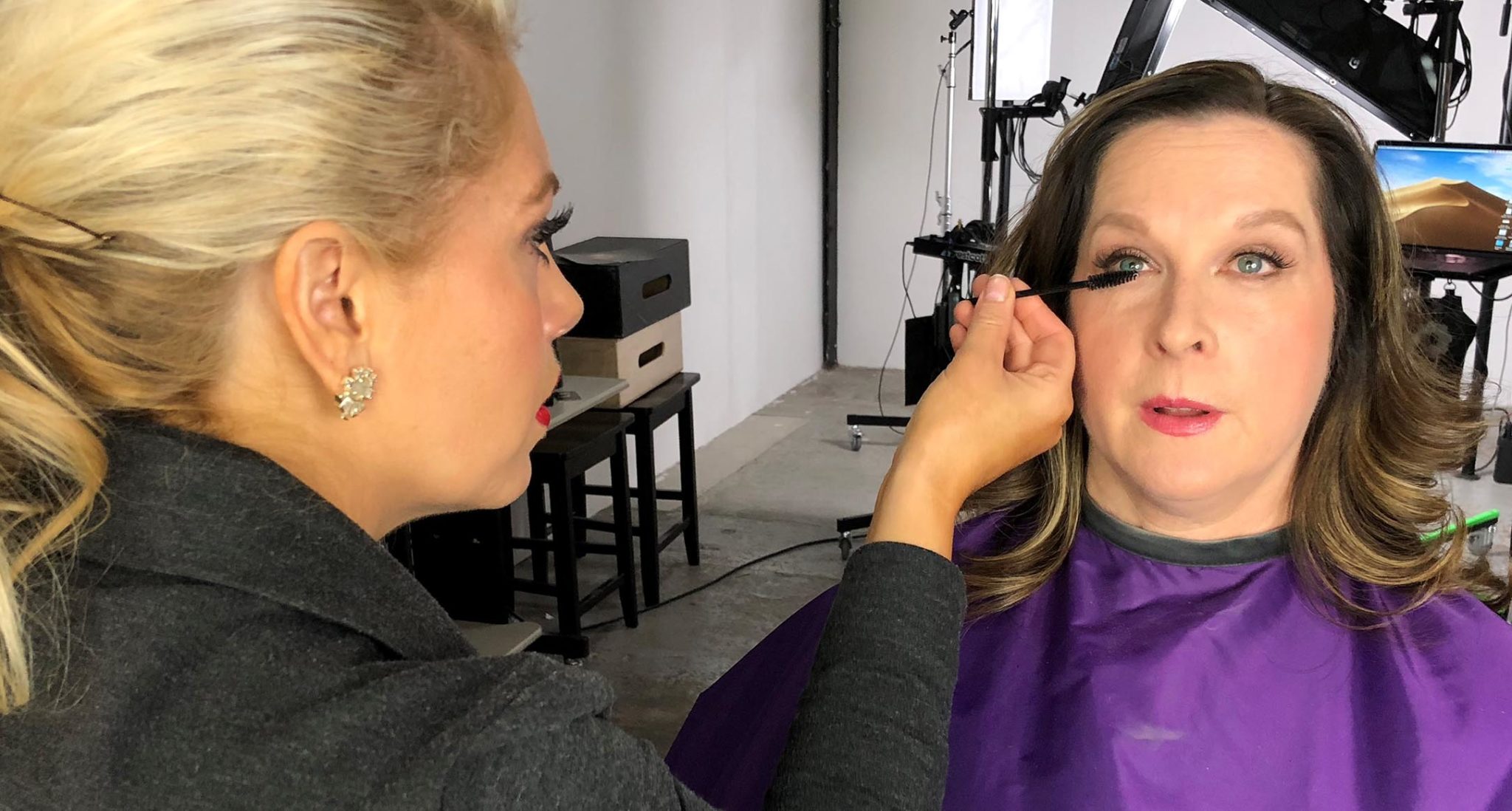
My Perfect Imperfections
October 4, 2021I was going to open this post with a statistic about how many attacks have occurred on American soil. But I realized the term “attacks” can now be interpreted countless ways.
And here comes the cliché: It’s complicated.
Instead, let’s just get to it and reflect on 9/11 from the perspectives of my husband, Rene Simard; his parents, Josie and Chanel Simard; and a delightful friend of the Simard family, Jennifer Smith, whom you hopefully read about late last summer when I wrote the three-part series about Rene’s deployment to Saudi Arabia on the 30th anniversary of Desert Shield/Desert Storm.
To set the stage, please note that 20 years ago some of us had flip phones and personal digital assistants, but very few had access to real-time news that came to our “devices.” Most of us got our news from a radio or television, or from the internet via a desktop computer where news websites looked like this:
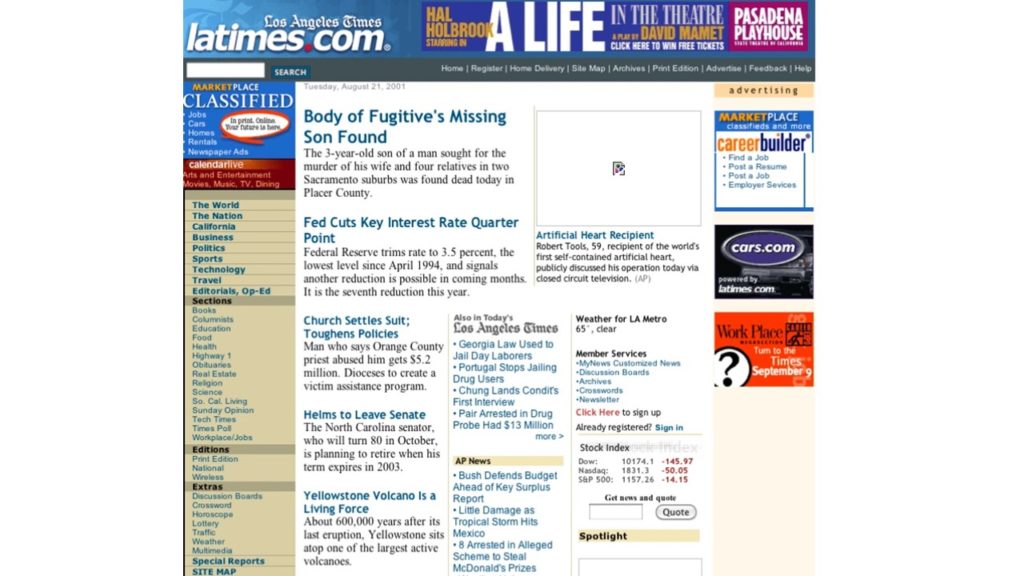
Rene’s Story
9/11 was a picturesque, cloudless day in Washington, DC. I had been promoted to Chief Master Sergeant in the Air Force (E9) three years earlier and had been stationed at the Pentagon for 18 months. I was the Logistics Plans Career Field Manager, as most of the Air Force career field job specialties had a Chief Master Sergeant whose job was to manage that career field.
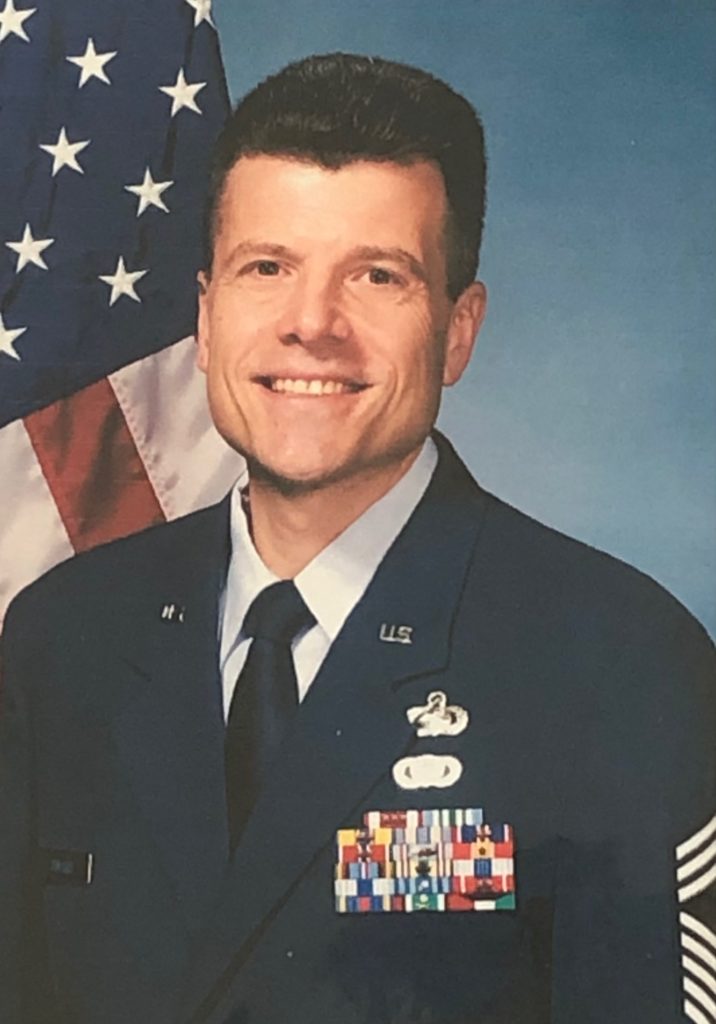
Typically, career field manager positions were given to Chiefs with more leadership experience (5-10 years’ time-in-grade), but I literally drew the short straw. It was an intense job with more responsibility than I’d ever had, but I was managing to hold my own.
While at the Pentagon, I relished my five-mile runs over lunch around the National Mall every other day. The landmarks were an inspirational reminder of all that our country had been through, not to mention the selfless sacrifices made by leaders and warriors for our freedoms. On Sept. 10, 2001, I ran with a friend who urged me to take a longer, 7.5 mile, run. At about mile 6, my right heel began to hurt since we were running on pavement.
On the morning of 9/11, my right heel was tight and it was painful to walk. Symptoms of an eventual diagnosis of plantar fasciitis were kicking in. I chose to wear my battle dress uniform because I thought combat boots would provide more support for my heel in case I needed to be on my feet more than usual.
After arriving at my desk at 7 a.m. at the Logistics Plans Division in the Pentagon, I did my routine check of emails and voicemails, then returned some calls. Later on, my boss, an Air Force Colonel, and I walked over to a scheduled logistics staff meeting in the LGX office.
During the staff meeting, someone interrupted with: “Two planes have flown into the World Trade Center in New York City and you all need to get back downstairs. We are activating the Combat Support Center.”
My first thought was whether a plane might try to fly into the Pentagon, since I assumed our nation was under attack. Contemplations raced through my head as my boss and I briskly walked back to our office, three floors underground on the opposite side of the massive building. I erased thoughts about the throbbing pain in my heel, which felt like I was walking on burning charcoal.
We arrived back at our office area, which had become part of the Air Force Command Center. Everyone was fixated on a large TV in one of the offices, and the first images I saw were of both planes flying into the World Trade Center towers, which looped repeatedly. We had not received any orders yet, so no one knew exactly what to do. So we kept watching.
Soon after, a call came in, reporting that the Pentagon had been hit. We hadn’t felt or heard a thing, nor did the building shake. Although it was tempting to go to the site of the crash to help, we were ordered to stay in place. The military was also ordered to a high state of alert and we got to work, reviewing deployment orders, alert procedures and even implementing plans to move a mobile transportable hospital to lower Manhattan. It sure felt like we were at war, but with whom?
By early afternoon, I could smell smoke in the Pentagon’s ventilation system and the command center was ordered to evacuate. I reported to a staging area to hop on a Blackhawk helicopter and head for Bolling Air Force Base across the Potomac River to help establish a temporary Air Force Command Center.
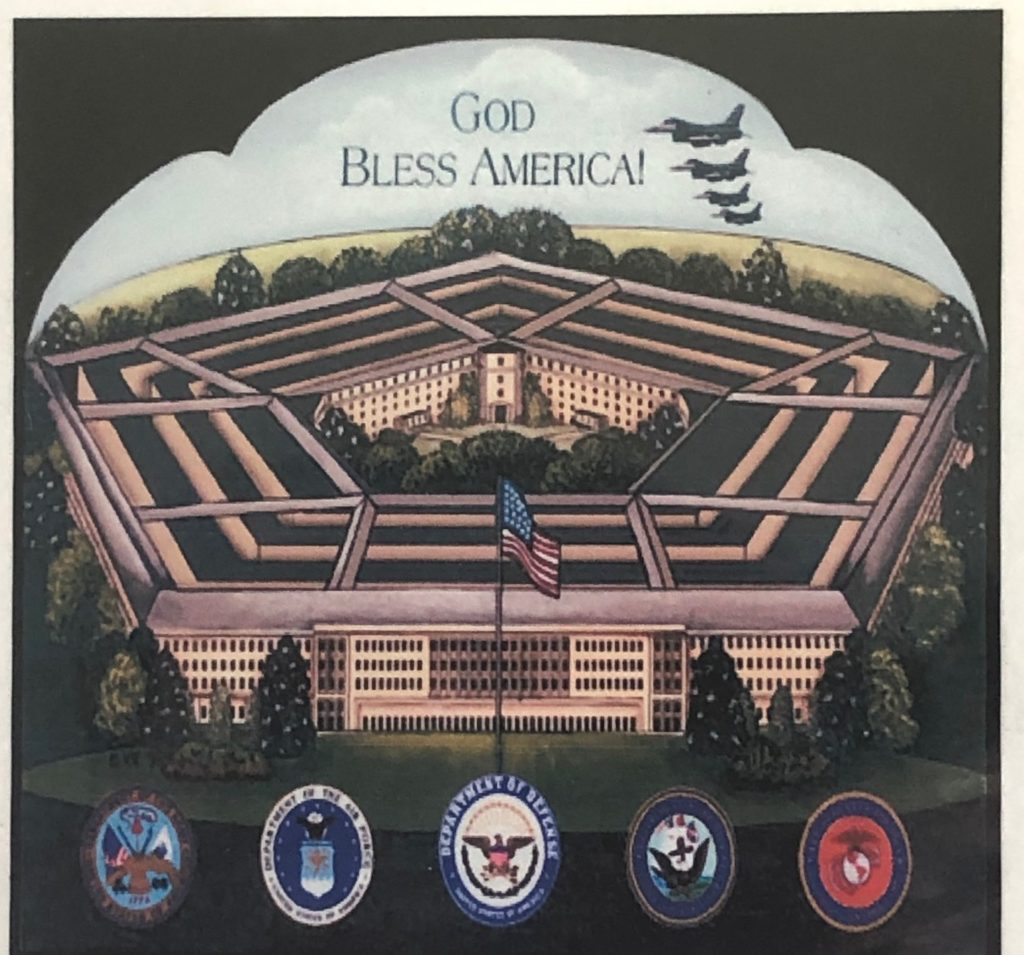
After we were finally set up at Bolling, I was able to get through to my parents late that afternoon to let them know I was safe. I was on duty until 10 that night until relieved by personnel who were released earlier in the day. The next day, we reported for duty back at the Pentagon, working 12-hour shifts, sometimes through the weekends, for the next five months. No one ever complained. I was never prouder to be serving my country than I was in the days and months that followed.
About one month later, I finally had time to schedule a doctor appointment to have my heel checked. We were fortunate to have a clinic located in the Pentagon. “Yep, it’s plantar fasciitis,” he said. “No running for you for at least eight months.” I was annoyed at myself for running those extra miles, but my eight months on a stationary recumbent bike allowed opportunities for valuable introspection.
In reflection, 9/11 intensified my patriotism and the appreciation I have for our country’s liberties. I had been contemplating retirement in about 18 months when my Pentagon assignment was due to end. However, the horrible events of that day and the tremendous response of my brothers and sisters in arms convinced me to stay in the Air Force, to proudly continue to honor my oath to support and defend the Constitution of the United States.
Josie’s Story
Chanel and I were at home in Salem, New Hampshire, that morning. From the moment events began to unfold, we worried about Rene. When we learned a plane had hit the Pentagon, I was paralyzed by fear, so I kept moving. Answering endless phone calls from friends and family asking whether Rene was okay, setting out food and snacks for family members who arrived. Chanel did not budge from the television, and he kept silent the entire time we waited for news about Rene. It was a terrible day.
Finally, late that afternoon we finally learned Rene was okay. When I answered the phone and heard Rene’s voice, I was so relieved I screamed. Soon after, family members were hugging each other and crying. Thank God our son was safe. To this day, my heart goes out to any parent who has a child serving in the military who goes through a similar experience.
Jennifer’s Story
Ten years after Desert Shield/Desert Storm — when I became Rene’s pen pal as part of a class assignment — I was in my first semester of college at Keene State College in Keene, New Hampshire. I was 18 and on my own. It was only week two of college and I was having a tough start.
The morning of 9/11, I had taken a quiz in my 8 a.m. psych class and was taking a nap before my 11 a.m. history class. Soon after, someone banged on my door to let me know the World Trade Center had been hit. Several of us huddled around a TV in a dorm room upstairs and watched the events unfold. When the news station announced an airplane had flown into the Pentagon, I started crying and called my mom, asking her to try to find out if Rene was okay. I knew he worked at the Pentagon, but didn’t know where in the building.
I knew I should be thinking about all the lives lost, but all I could think about was Rene. Mom called back and said she talked with Chanel and Josie, but they had not yet gotten through to find out if Rene was alright. We watched TV coverage all day and I couldn’t eat. I was anxious, feeling helpless but hopeful. Rene was okay — I just needed to hear it.
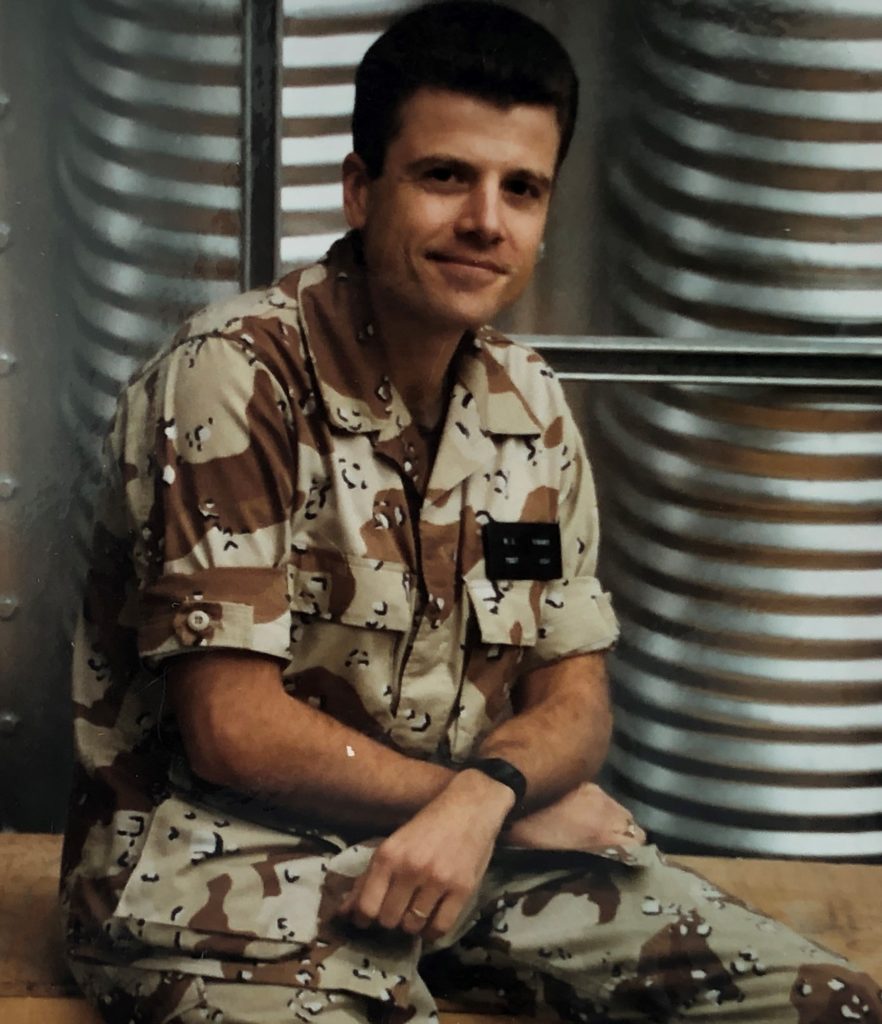
After he and I had become pen pals 10 years prior, mom put a 3 x 5” picture of Rene in his fatigues in a frame, which ended up going with me every place I lived. Somehow, he was like a member of our family. The glass in the frame eventually broke, but I never put the picture in a new frame. I felt so special that I had had a connection at such a young age with someone serving our country. Maybe in a way I wanted to know I had more than just my family guiding me. His family came to my first communion and cookouts, and it seemed we always kept in touch without keeping in touch. I admired everything Rene and his family had done, and I knew they would drop everything if I ever needed help.
During Desert Shield/Desert Storm, I was the only one in my class who got a return letter from a soldier. I’ll never forget the impact Rene’s letters had on me. At the welcome home parade in Salem after the war — the first time I met Rene in person — I was so excited the organizers wanted to include me in the program, and I remember I got to carry the yellow balloon that said “Rene.”
The night of Sept. 12, 2001, mom finally found out Rene was okay, and she called to let me know. I remember crying tears of joy, and I’m pretty sure I kissed his picture that night. The next time I saw Josie and Chanel, I hugged them for what felt like five minutes. I think of Rene every year on 9/11, and I also think of Chanel, because it’s his birthday.
To this day, I still tell the story about Rene being my pen pal and what an honor it is to be part of his and his family’s lives.
***
My gratitude and thanks to Rene, Josie, Chanel, and Jennifer for their candor and honesty.
In closing, where was I that awful morning? Driving to a “friend-raiser” breakfast at the Denver Museum of Nature and Science. The museum was proposing to build an educational exhibit featuring America’s achievements in space, and the company I worked for was considering a donation. I was listening to Denver’s AM talk radio station KOA in the car, which was interrupted by breaking news that a small airplane had flown into one of the World Trade Center towers.
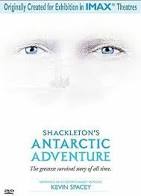
For the next several minutes, commentators tried to speculate how a small airplane could have veered into such highly restricted air space. I parked at the museum, enjoyed a continental breakfast and listened to the museum director’s pitch about building the space exhibit, then was treated to a showing of Shackleton’s Antarctic Adventure, an extraordinary 40-minute documentary, in the Imax theater.
After the film ended, a representative from the museum came to the podium in the theater, thanked everyone for attending, then said she had some sobering news. “Over the past 90 minutes, two airplanes have flown into the World Trade Center and both towers have now collapsed, another airplane has flown into the Pentagon, and another likely hijacked airplane is headed for Washington, DC.”
That moment of shock and terror is a close second only to hearing these words: “I’m sorry to have to tell you the cells from both biopsies came back positive for cancer.”
My goal with these 9/11 stories is not to shock, blame, or re-open old wounds. Instead, I sincerely believe contemplative reflection is an important tool for healing. My heart will never stop aching for all the human lives taken, the lifelong trauma the events created, and the innocence that was stolen. At age 36, terrorism finally got real to me that day. Unfortunately, it is still far too real today.
May our world never give up on the pursuit to co-exist in peace.

This month I have a heartfelt postscript. Our family in Nebraska said farewell to a dear friend, Leonard Williams, on August 17. Leonard, who courageously endured multiple bouts with colon cancer, was my brother-in-law Russell’s brother and a very close friend to my brother, Lee, who has now lost two of his best life-long friends to cancer 364 days apart. Lee and Leonard coached Grand Island’s Home Federal men’s fast-pitch softball team that won the national championship in a Hoosiers-style effort 20 years ago, also in 2001. Leonard always wore number 9 on his softball jersey, in honor of the great Ted Williams.
Our prayers for reflective healing and strength go out to Leonard’s wife, Judy, and the entire Williams family.
Ol’ Number 9, this is for you:
